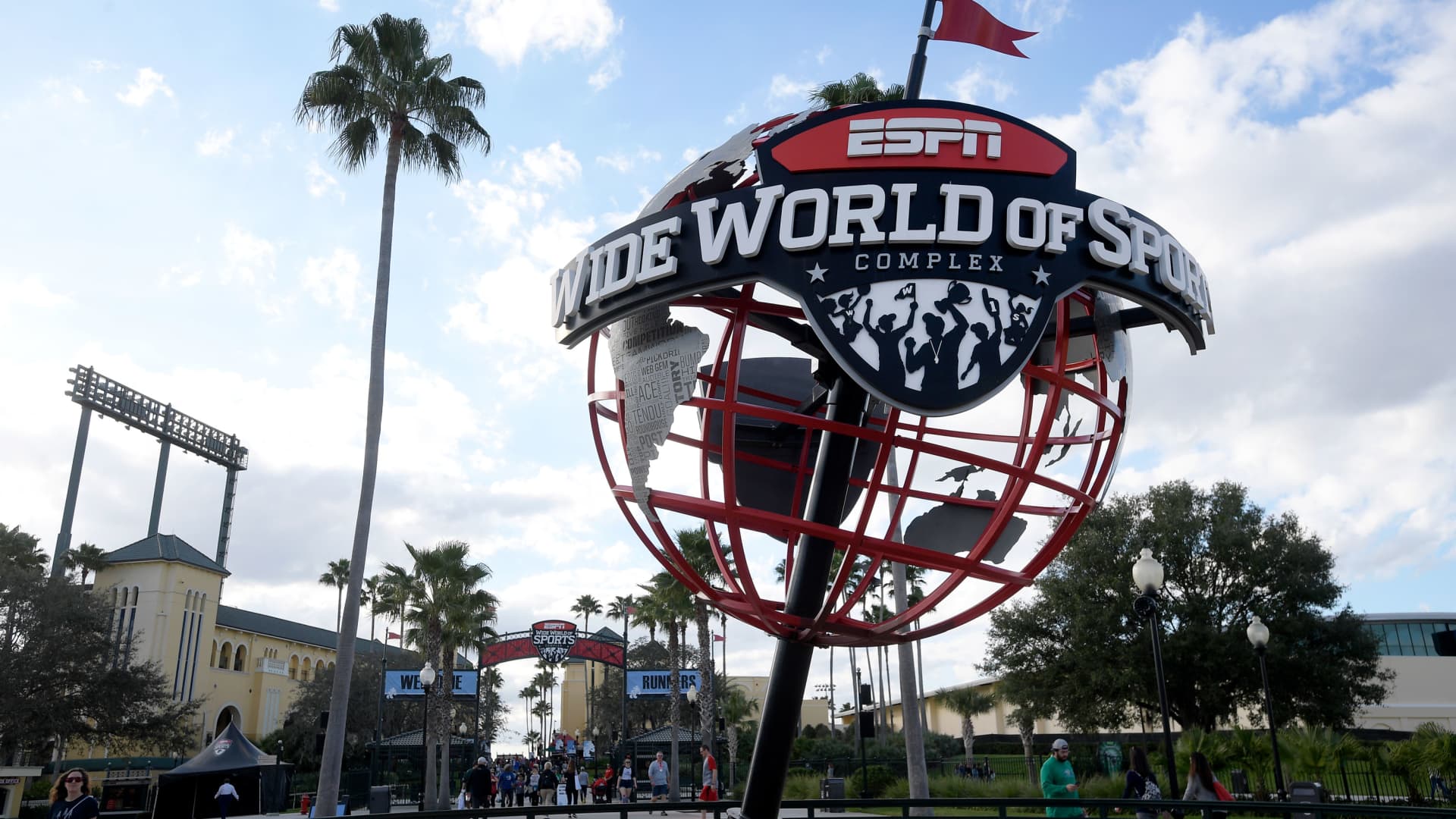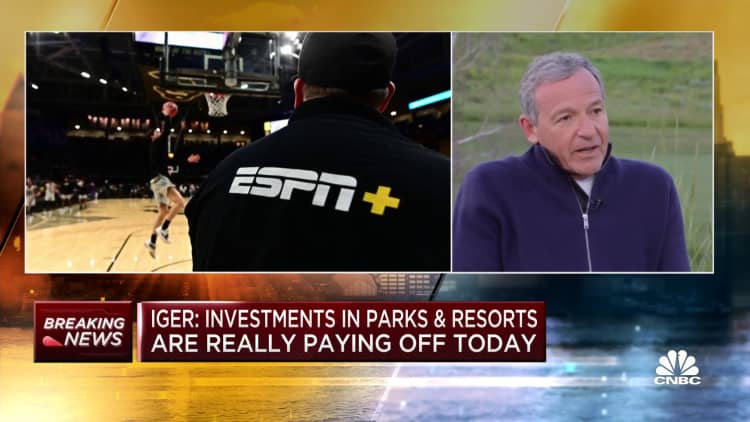

Disney is open to potentially selling an equity stake in ESPN and is looking for a strategic partner in the business as it prepares to transition the sports network to streaming, CEO Bob Iger said Thursday.
The linear TV business has degraded over the past year more than Iger expected, the Disney CEO told CNBC’s David Faber Thursday in an interview at Sun Valley, Idaho. Disney announced yesterday Iger has extended his contract to 2026 as CEO. He returned to run Disney last year after stepping down as CEO in 2020.
Disney has held early conversations with potential partners that could improve an ESPN streaming service by extending its distribution and adding content, Iger said. He declined to name specific partners. Disney currently owns 80% of ESPN. Hearst Communications owns the other 20%.
Disney has held off from putting its prime ESPN content on its ESPN+ streaming service as it continues to make billions of dollars in revenue each year through traditional cable TV. Still, millions of Americans cancel their cable subscriptions each year, and that number has accelerated in recent years.
“The challenges are greater than I had anticipated,” Iger said. “The disruption of the traditional TV business is most notable. If anything, the disruption of that business has happened to a greater extent than even I was aware.”
A broader streaming offering
Iger said he had become more certain in his thinking about when ESPN will launch its complete direct-to-consumer offering. He declined to say when that will happen.
Iger’s comments about finding a strategic partner suggest he believes ESPN may function better in a streaming environment if paired with other companies’ sports content. CNBC reported earlier this year that ESPN wants to be a hub for all live sports programming if it can agree to partnerships with other media companies.
ESPN became the crown jewel of Disney’s asset portfolio in the early 2000s by charging increasingly exorbitant amounts to pay-TV providers for the right to carry the network. The popularity of its sports programming, including “Monday Night Football,” allowed it to this.
But in the traditional cable TV business model, ESPN made money per cable subscriber — whether a person watched or not. In a streaming world, only intentional sports fans would buy a service. That increases the importance of putting as much quality programming on the platform as possible — especially if it’s priced more higher than entertainment streaming services.
In addition to finding a strategic partner for ESPN, Iger said he was open to selling or spinning off Disney’s legacy cable networks, including FX and NatGeo, and its broadcast group, ABC Networks. Iger said Disney would be “expansive” in its thinking about the legacy cable and broadcast assets, outside of ESPN.
Iger also said Disney plans to acquire Comcast’s minority stake in Hulu as planned. The two companies struck a deal in 2019 that would give Disney the option to buy Comcast’s minority stake at a fair market value.
CNBC reported earlier this year that Comcast CEO Brian Roberts had floated the idea of Disney selling it ESPN as part of Hulu negotiations when prior Disney CEO Bob Chapek was still running the company. Disney declined those overtures at the time.
Other potential partners for Disney could theoretically include Apple, Google or Amazon, three companies with large balance sheets that have global streaming aspirations and already own sports content. Amazon owns the exclusive rights to the National Football League’s “Thursday Night Football.” Google’s YouTube TV will be the new home for the NFL’s “Sunday Ticket” beginning this season. Apple currently owns the streaming rights to “Friday Night Baseball” and all Major League Soccer games.
Disclosure: Comcast is the parent company of NBCUniversal, which includes CNBC.






